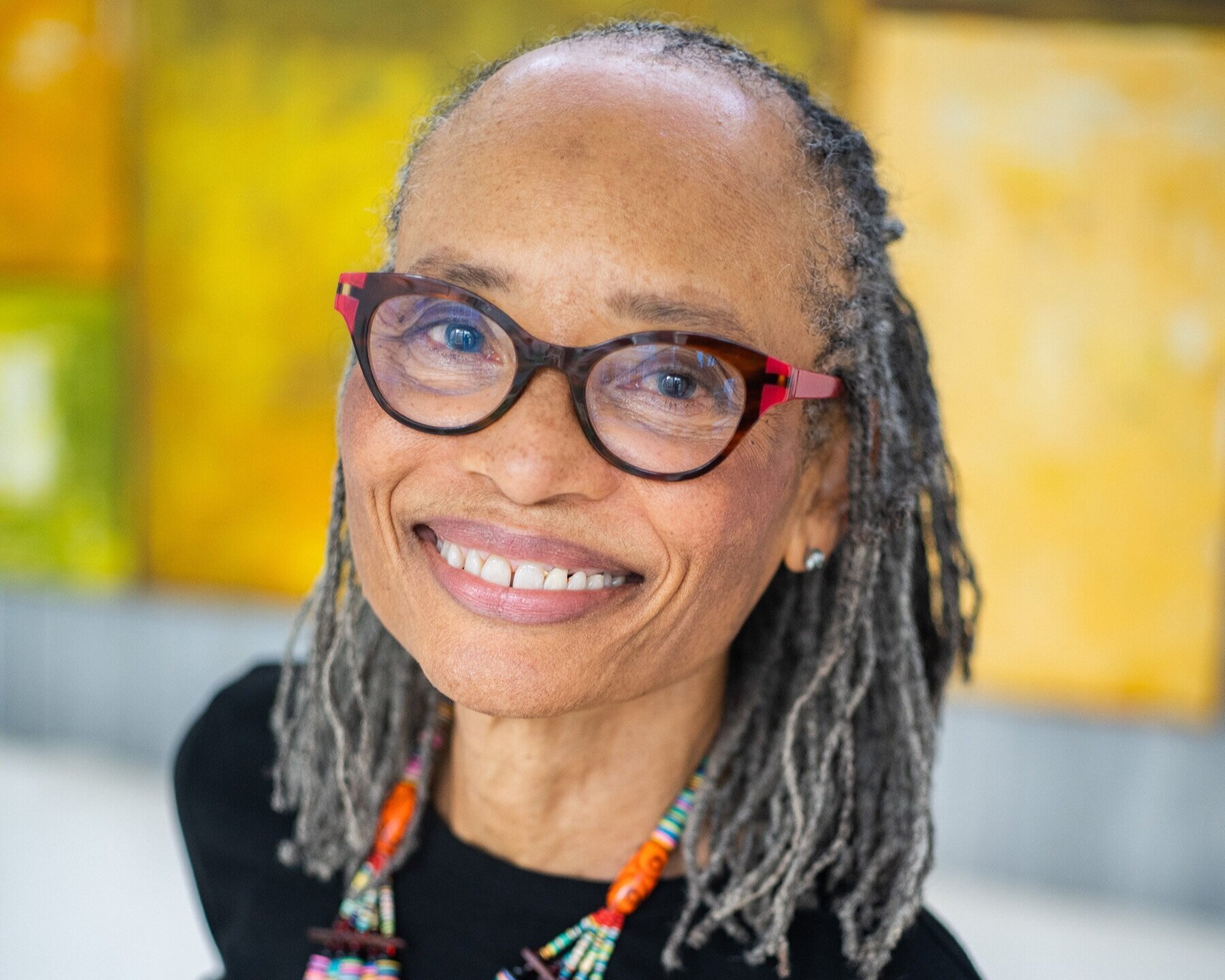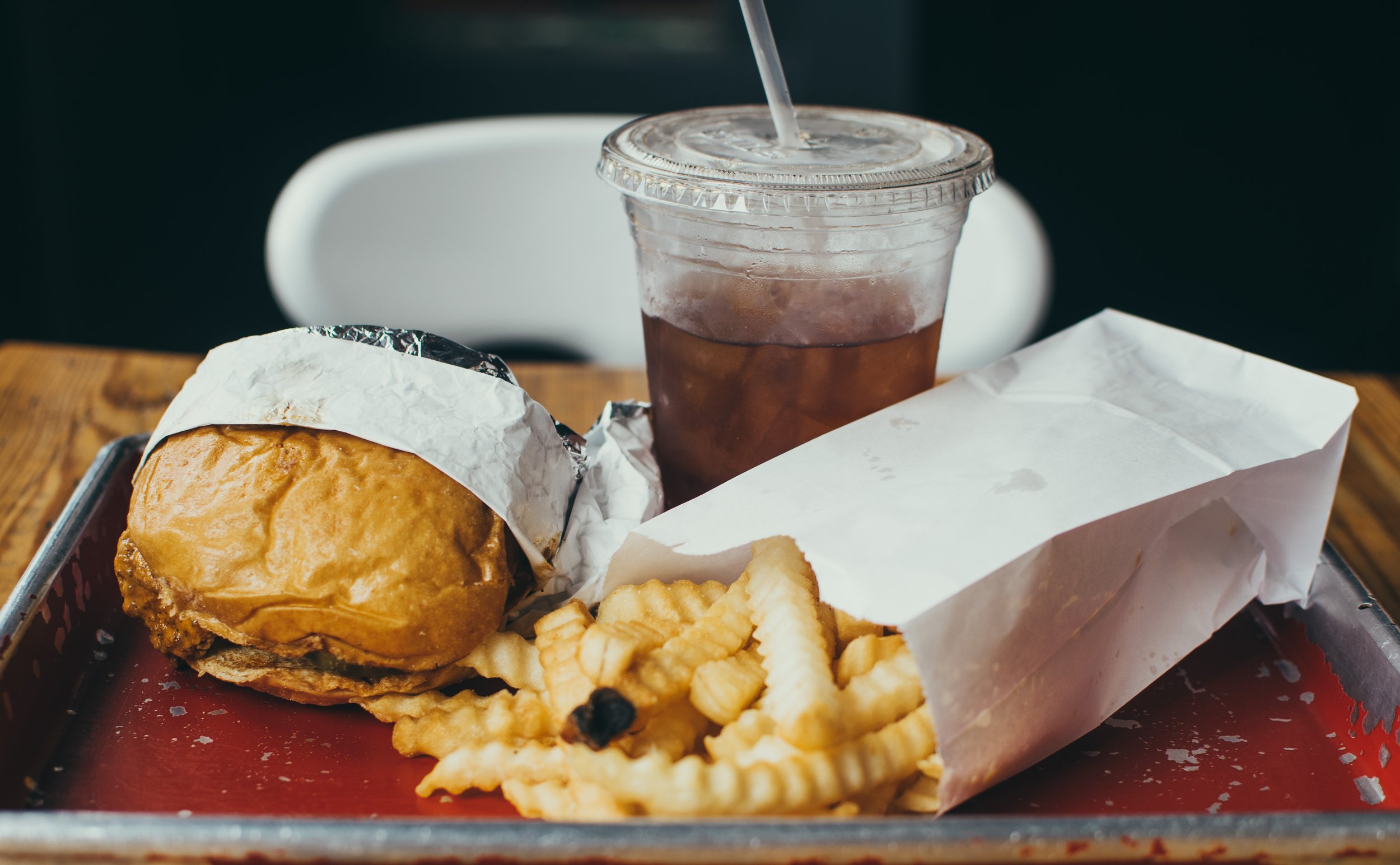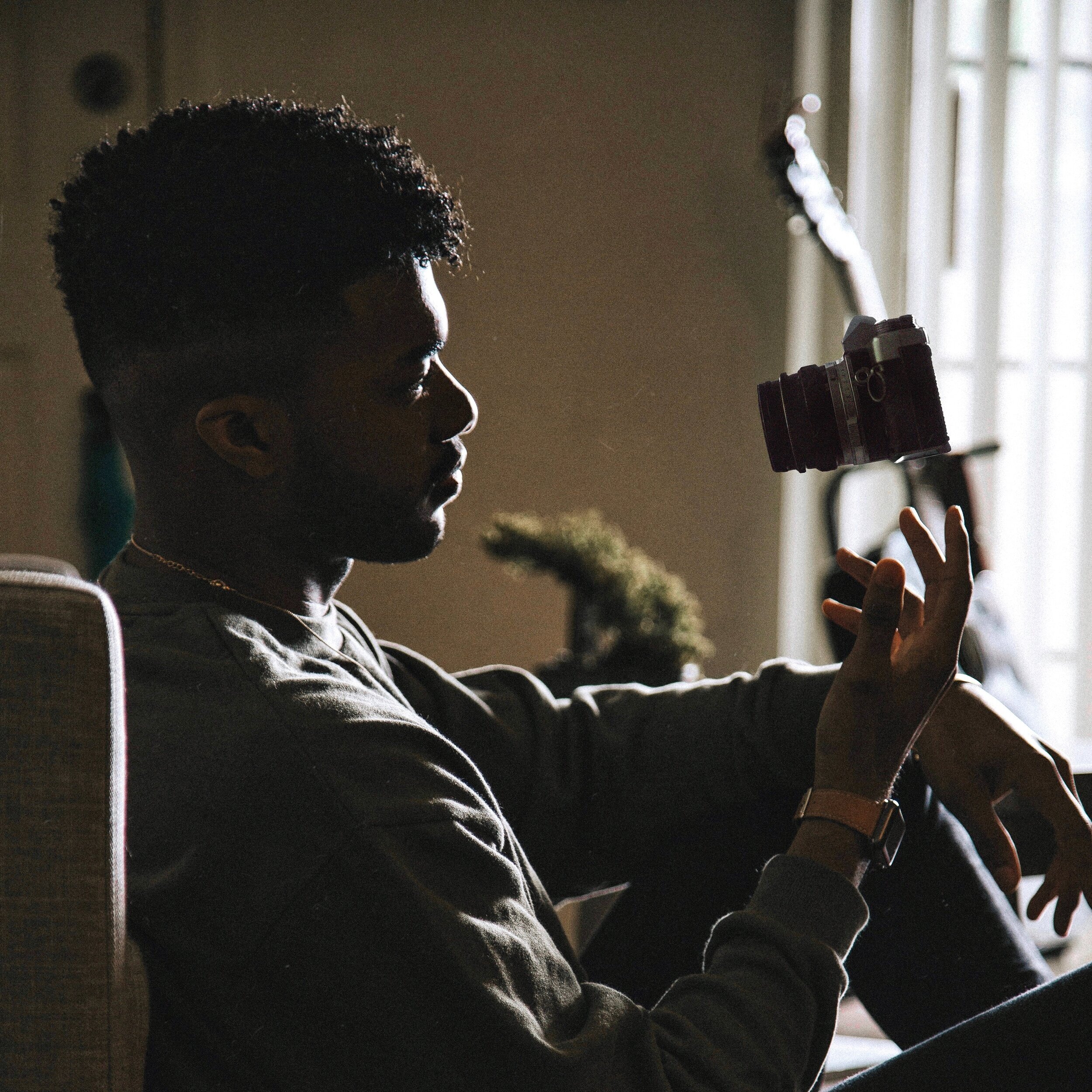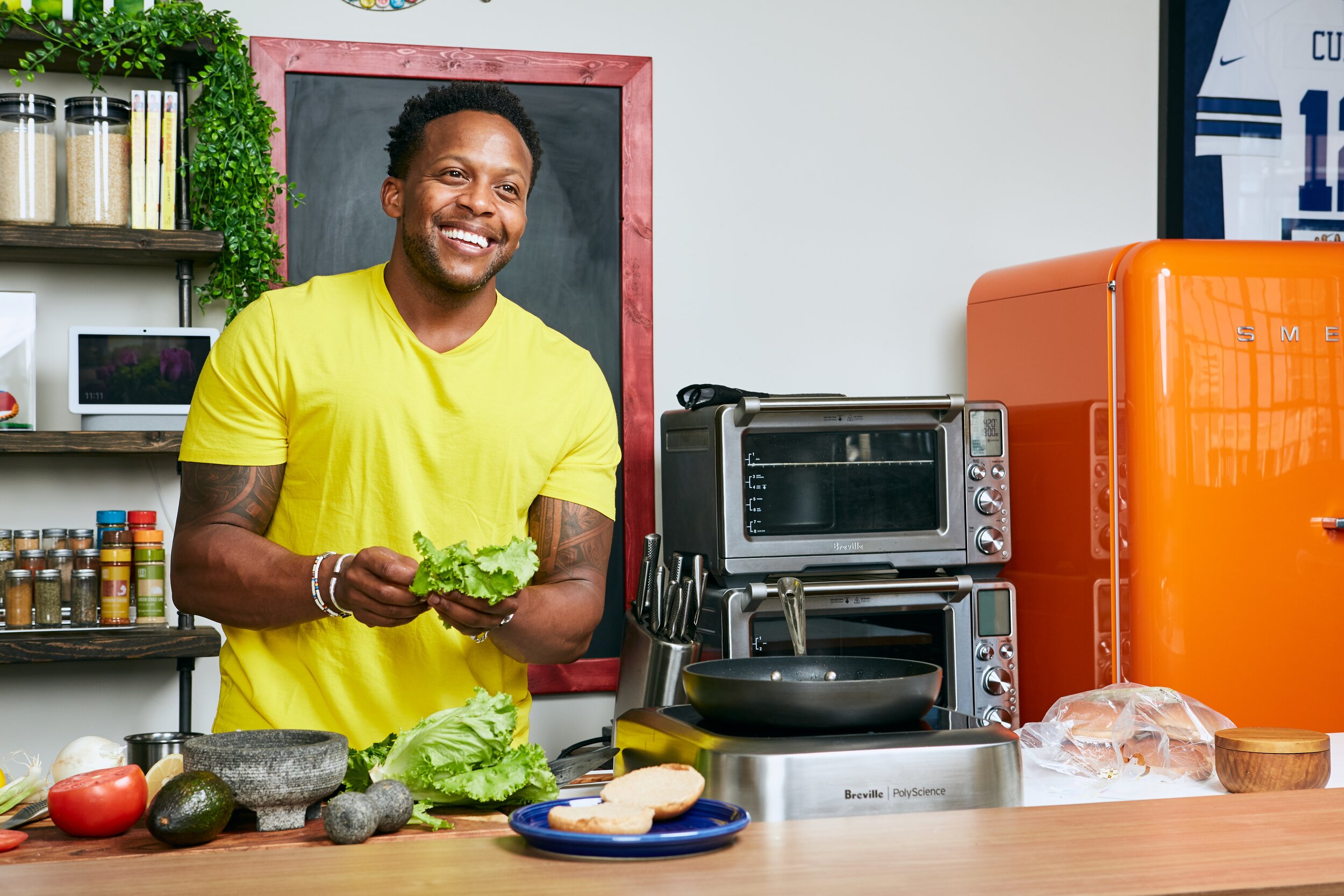1-on-1 with Houston’s Sherra Aguirre

As the state continues to navigate the path of entering the new normal, many Texans are taking time to reflect on their lifestyles and look for ways to improve their daily habits. With many Texans experiencing the “pandemic 20,” it’s no surprise that some are looking to turn things around.
In order to better understand one of the most popular dietary decisions — going vegan — I spoke with Sherra Aguirre, an Entrepreneur, Health Enthusiast, Food Justice Advocate and Author of Joyful, Delicious, Vegan: Life Without Heart Disease from Houston about how she switched up her lifestyle without without loosing the things she loves.
What was the catalyst for your decision to change your lifestyle and eating habits?
Around my 30th birthday, I noticed how my energy would fall through the floor most afternoons after I ate my typical fast food lunch of burgers, fried chicken, etc. I began to connect the dots between what I ate and how I felt and started to make a few changes. I gave up the fried food first because I knew that wasn’t helping, and over time I made other small changes. I felt so much better physically and had so much energy that it started a lifelong interest in the relationship between food and health. I’m lucky there weren’t any Five Hour Energy drinks around or I would have missed the bigger picture.
As you began to lead a vegan lifestyle, what changes did you experience? How did you battle cravings?
Starting anything new, even when you know it will be better for you, is the hardest part. The title of my book, Joyful, Delicious, Vegan: Life Without Heart Disease is a pretty good clue to my approach. I had to change my mindset from one of clinging to the past to one of looking for something better. I had to embrace the belief that better is always possible if we take the time to find it. Because of my family history of heart disease, I had to first decide whether to feed my health or feed illness, and then discover ways to do it in a delicious and joyful way. And I wanted to enjoy the journey. When I had cravings, rather than deny them, I found foods that satisfied them and were also good for me. As an example, one of the recipes in my book is Zoela’s Apple Crisp, named for my granddaughter who helped me make sure it passed the taste test! It’s simple and easy to make and you’ll have to remember the moderation!
What was it like, for you, to get away from the traditional southern foods commonly found in the African American diet?
That’s a really good question because most people think we have to give up the tastes and food traditions we love and are familiar with. I never looked at it that way, and I still enjoy all of those flavors in healthier, whole plant-based versions. I’ve lived all my life in Texas and I’ve always loved to eat! I know that historically meat was a luxury and most people couldn’t afford it at every meal. As a result of that, and because we grew or had more access to fresh produce that was not genetically modified or pesticide laced, we were healthier. We ate, and I still do, lots of collard greens, red beans, pinto beans, white beans, butter beans, black eyed peas, sweet peas, rice, cornbread to name some favorites. This plant-rich way of eating is something we brought with us from West Africa. Today we achieve the traditional tastes without the meat using spices and vegetable textures which can make these foods taste even better than the older versions!
When it comes to healthy eating, do you think it makes sense for people to try to create dishes that mimic foods that they've had before?
I don’t just mimic favorite foods. I look for ways to make foods I love even better with a whole plant-based version. Now there are literally hundreds of thousands of vegan recipes that are easy to find online, and you can even be creative with those. There are also more options than ever at health-conscious restaurants. My favorites are the local vegan eateries you can find in most cities. Their owners are typically passionate about taste, quality and your health.
How have meditation and yoga played a role in your journey and overall health? Do you believe that these are habits that any person can pick up?
Yes, absolutely to both questions. Meditation and yoga can open up an awareness of our mind/body/spirit connection in ways that are a little bit unique for each of us. They are not the only ways to do that, but for me they are the most important part of my day, setting the tone for everything else. And yes, meditation in particular can look different for different people, for some it can be a walk in the park, sitting by a lake or watching a sunset and some people report feeling a meditative state while running. Taking time to reflect and connect with what is truly important is the benefit.
Are there any everyday changes people can make to lead more compassionate lives?
My advice for increasing our compassion for ourselves first and then for others includes:
Self-Care – Treat yourself with kindness, good care and acceptance.
Connection –Listen to other people’s stories and find common ground through shared experiences
Service – Helping others or an organization you care about expands feelings of love and connection. Many vegans are motivated by compassion for food animals.
How can all of this be combined to help defend African Americans from illnesses such as stroke or high blood pressure?
As African Americans we face the stress of systemic racism including economic disparity, food deserts, lack of access to quality health care and environmental racism. It is clear that we have much to gain by focusing on our health and that of our communities. Some important steps we can take are to:
Choose physicians and medical providers who dispense health and nutrition support in addition to medications.
Find and support organizations that provide community food and nutrition workshops, cooking classes and access to health resources.
Support urban gardens, farmers markets and local black farmers.
Buy from local healthy vegan and plant-based restaurants and food providers, many of which are black and minority owned.
It is interesting to note that Black Americans are almost three times as likely to identify as vegetarian or vegan as white Americans according to a BBC article published in 2020. Not only can we begin to reverse our negative health outcomes in this country, we can also inspire the world with our example of resilience and compassion.
Aguirre’s book, Joyful, Delicious, Vegan: Life Without Heart Disease is available in Target and other bookstores, as well as online.
Nick Bailey is a forward thinking journalist with a well-rounded skill set unafraid to take on topics head on. He now resides in Austin, TX and continues to create content on a daily basis.





